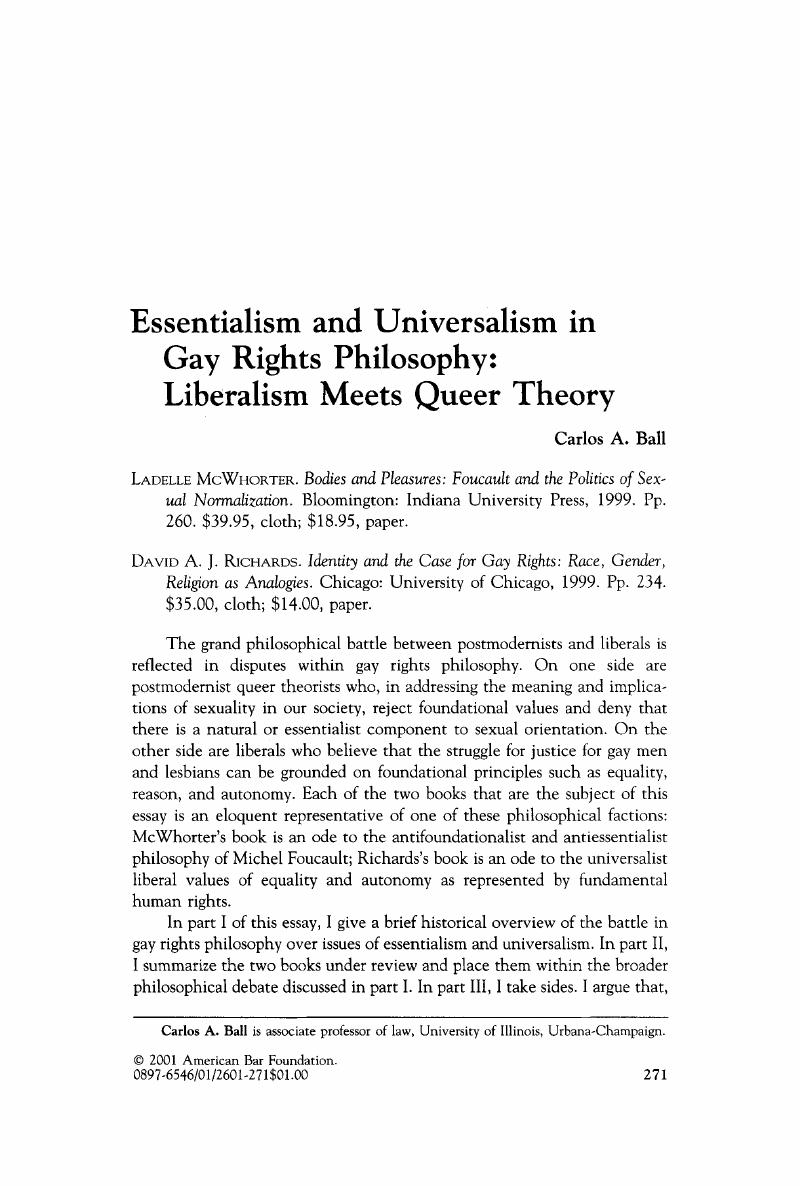Crossref Citations
This article has been cited by the following publications. This list is generated based on data provided by Crossref.
Slagle, R. Anthony
2006.
Ferment in LGBT Studies and Queer Theory.
Journal of Homosexuality,
Vol. 52,
Issue. 1-2,
p.
309.
Stocks, Thomas
2015.
To What Extent Have the Rights of Transgender People Been Underrealized in Comparison to the Rights of Lesbian, Gay, Bisexual, and Queer/Questioning People in the United Kingdom?.
International Journal of Transgenderism,
Vol. 16,
Issue. 1,
p.
1.
Alipour, M.
2017.
Essentialism and Islamic Theology of Homosexuality: A Critical Reflection on an Essentialist Epistemology toward Same-Sex Desires and Acts in Islam.
Journal of Homosexuality,
Vol. 64,
Issue. 14,
p.
1930.
Loji, A. C.
2021.
Let’s dance: Diversified depictions of queerness in ensemble dance music videos.
Queer Studies in Media & Popular Culture
,
Vol. 6,
Issue. 1,
p.
35.
Almarai, Akeel
and
Persichetti, Alessandra
2023.
From Power to Pleasure: Homosexuality in the Arab-Muslim World from Lakhi’a to al-mukhannathun.
Religions,
Vol. 14,
Issue. 2,
p.
186.
Banović, Damir
2023.
Feminist Approaches to Law.
Vol. 1,
Issue. ,
p.
73.





